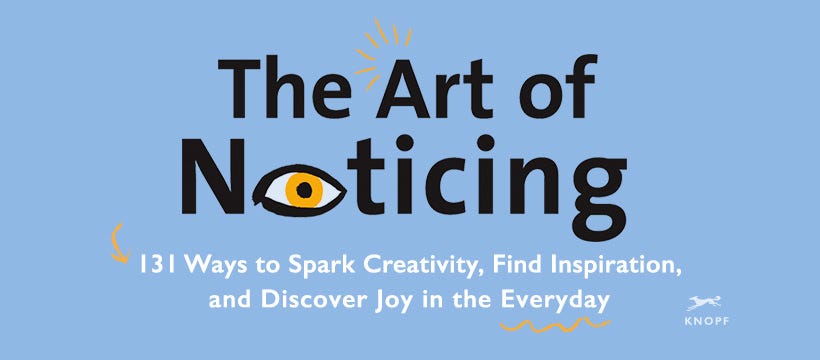TAoN No. 66: A Humility Lesson
When the best answer is a question. PLUS: Missing words, a new icebreaker, and more
The Art of Noticing: 131 Ways to Spark Creativity, Find Inspiration, and Discover Joy In the Everyday offers exercises, prompts, provocations, games and things you can actually do to build attention muscles, stave off distraction, pick up on what everybody else overlooked, and experience the joy of noticing. Indiebound | Amazon | Barnes & Noble | K…
Keep reading with a 7-day free trial
Subscribe to The Art of Noticing to keep reading this post and get 7 days of free access to the full post archives.



